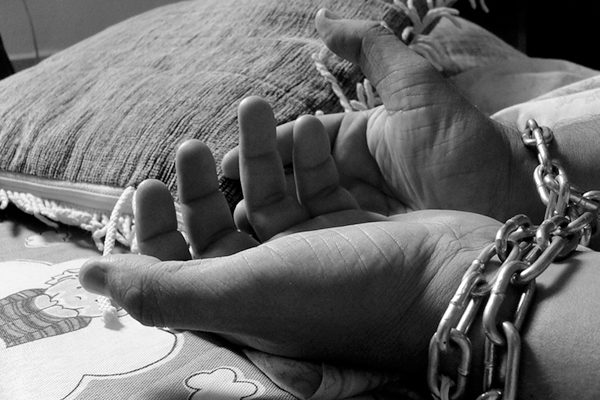
Although the term “human trafficking” is relatively new, the phenomena it comprises – sex trafficking, forced labor and debt bondage – have been around for nearly as long as civilization itself.
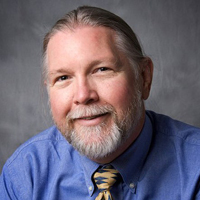
Hugh Potter, UCF criminal justice professor and one of the co-authors of Human Trafficking: A Systemwide Public Safety and Community Approach, grew up in Florida working with uncles who were “crew chiefs” who took workers around the state to work the crops. As Potter said, “I have no idea whether they were trafficking, but it was certainly the type of work where the crew chief probably got most of the workers’ income for the ‘services’ they provided to the workers.”
The United Nations defines human trafficking as “the recruitment, transportation, transfer, harboring or receipt of persons by improper means (such as force, abduction, fraud or coercion) for an improper purpose including forced labor or sexual exploitation.”
The dispassionate definition of human trafficking does not take into account the terrible and myriad ways that traffickers conduct their “business.” In October 2017, the Polk County Sheriff’s Office conducted a week-long undercover sting targeting human trafficking and online prostitution that culminated in 277 arrests that included doctors, pharmacists and active and retired law enforcement officers.
Also in that month, the FBI, along with the National Center for Missing and Exploited Children, recovered 84 children and arrested 120 suspected traffickers as part of a nationwide initiative to combat sex trafficking in minors. In the sting, traffickers offered a 3-month-old baby and a 5-year-old girl to undercover officers for $600.
Human trafficking has continued to grow, largely unchecked, mostly due to its global economy estimated at more than $150 billion of pure, untaxed profit a year, according to the International Labour Organization. The investigation and prosecution of those who benefit from human trafficking, as well as the rescue of its many victims, are, naturally, prime areas of concern for local, state and federal law enforcement.
Academics at UCF have also been marshalling their considerable resources to shed a light on human trafficking. Potter, along with co-author Jeffrey Goltz ’08, became interested in the topic after attending a crime summit workshop in 2014 hosted by the Orange County Sheriff’s Office. They went on to collaborate on a similar workshop at Valencia College, where Goltz serves as the executive dean of the School of Public Safety. Their new book is a product of the workshop, which was attended by area experts on the field, many of whom also collaborated on the book.
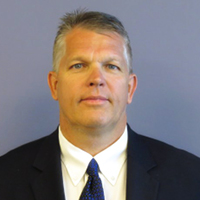
All of the contributors on the book donated their time and talents, and all royalties from the book will be donated to Valencia Foundation for future human trafficking training and education at Valencia’s School of Public Safety, Goltz said.
Investigating Human Trafficking in Central Florida
If you think that Orlando is immune to human trafficking, you would be wrong, said the UCF alumni interviewed for this piece. “Once you know what you’re looking for, it’s not hard to find,” said Courtney Harrison ’06.
Like any thriving metropolis, Orlando has its fair share of challenging areas to police. Sector IV, according to the Orange County Sheriff’s Office website, has historically been an area of concern. It is also where Harrison spent five years as an OCSO deputy – the high-crime and high-drug activity area introduced her to the world of human trafficking, and has inspired her career trajectory.
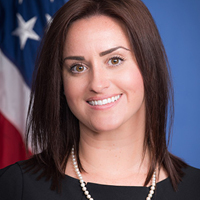
Harrison is currently employed by the Florida Department of Law Enforcement, assigned to the Organized Crime Squad where she specializes in human trafficking and child exploitation investigations at the state and federal level. Harrison is a member of the Northeast Florida Human Trafficking Task Force, the Interstate Human Trafficking and Crimes against Children Workgroup, the Pacific Northwest Human Trafficking Interdiction Group, and serves on the Executive Board for the Northeast Florida Human Trafficking Coalition.
To date, Harrison has played an active role in more than 500 arrests related to prostitution and human trafficking. In the next few months (the air date has not been set), she and some of her colleagues will be featured working a human trafficking case on the CBS network’s 48 Hours.
“Human trafficking is not new — it’s been around for some time.” Harrison said. “But thankfully, people are now paying more attention to this growing issue.”
Victims Are Often Overlooked
When Dave Allmond ‘88 was a newly sworn beat cop with Orlando Police Department, he noticed that he encountered many prostitutes during his shift. Allmond, currently a sergeant with OPD and a supervisor with MBI, said that although the old adage of, “If you see something, say something,” still applies, “You need to know what you’re seeing.”
Often marginalized and unnoticed, Allmond said the population fell into a group he calls, “one of those dirty little secrets.” A group that, like drug users or the homeless, most people – unless they are researching the issue or advocating for its victims – tend to overlook.
A vice agent for five years, Allmond said “Prostitution is more of a problem than we are aware of,” and he became aware of “females exploiting females” and other evidence of “behind the scenes coercion.”
The tide is shifting, Allmond said. Prostitution is now considered sex trafficking, transcending racial and socioeconomic barriers. In a city famous for its theme parks, thousands of hotel rooms and travelers of all types, it is a tale as old as time. Predator vs. prey. Except instead of the savannah, the hunting grounds of a human trafficker are not just in Sector IV.
Allmond said that recent cases his team at MBI have worked include a man who recently purchased a minor for a weekend and was charged with human trafficking. In another case, a young woman who had been accepted into an Ivy League college was rescued from her trafficker.
It’s important to note that victims of human trafficking are not always anxious to be rescued, Allmond said. “They don’t say, ‘Oh, thank God, the police are here!’” Forget anything you may have seen in the movies. Traffickers are excellent at their job, and can easily zero in on their most vulnerable targets through various social media sites and appeal to the victims’ needs, whether rooted in drugs, money or acceptance. Soon, the victims are hooked and may not see a way out.
'Human Trafficking is Slavery'
Human traffickers control both the supply and demand of the services they offer. Thanks to their power and portability, today’s handheld devices make them the perfect choice of human traffickers to grow their “business.”
Within minutes, a trafficker can post a suggestive picture and contact information on multiple websites, and have potential “clients” willing to pay. However, almost as quickly as the advertisement is posted, people like Kaila Williams ’16 are tracking their location via sophisticated software.
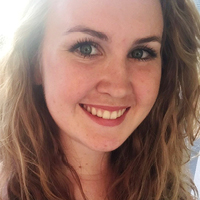
Williams is a crime intelligence analyst for the State Attorney’s Office, Ninth Judicial Circuit and is assigned to MBI. She looks for patterns and trends within possible human trafficking rings, and assists agents locating suspects and victims. Most of her work occurs behind the scenes, Williams said, but occasionally she goes into the field with sworn officers.
“In my short time being here it is heartbreaking to see how often trafficking occurs,” Williams said. “The public needs to know that this is not one of those problems that only occurs in third-world countries. This is a first-world problem, a second-world problem and a third-world problem. Human trafficking is slavery. “
Cycle of Violence Can Be Broken
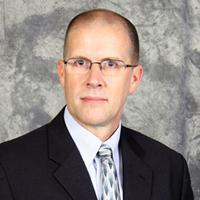
Ron Stucker ’96 is the director of MBI, and is all too familiar with the “cycles of exploitation” faced by the victims of human trafficking. “The victims are subjected to degradation and abuse for others’ profit and gratification,” Stucker said. “Agents, victim specialists and analysts assigned to the Metropolitan Bureau of Investigation work tirelessly to assist victims and help restore them to meaningful and productive lives, while bringing their traffickers to justice. They are dedicated professionals who believe the victims have value and the cycle of violence can be broken.”
'We're Competing Against the Pimps'
“Our unit is very unique,” said Ashley Oramas ‘11. Oramas is a Victim Specialist for the State Attorney’s Office in the Ninth Judicial Circuit. She is also assigned to MBI’s Human Trafficking Task Force.
In her role, Oramas is an advocate for victims of human trafficking, and becomes involved with them almost as soon as they are identified as victims. She helps pair them with the services they need – immigration attorneys, free medications, housing and clothing, mentors and other support services.
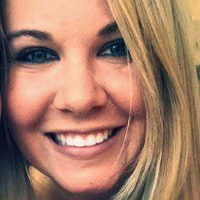
One of Oramas’s earliest exposures to human trafficking involved a 17-year-old female who had escaped from her trafficker and was living with her parents. Oramas checked on her from time to time, and kept her apprised of the status of her trafficker’s progress in the court system.
Oramas found out one day that the young woman, who had become addicted to opioids during her time with the trafficker, had died due to an overdose. “It lights a fire in your belly,” Oramas said. “We were involved in a small part of her life.”
Although an ideal human trafficking case will result in a successful prosecution against the trafficker and a victim who goes on to live happily ever after, that is simply not reality, Oramas said. In one particular case, Oramas remembered the victim going in and out of rehab “ten times.” What Oramas considered a victory, she said, was that the victim stayed sober for longer each time between the rehab admissions.
“We’re competing against the pimps,” Oramas said. “There is a lot of fear, coercion and threats made against the victims. They are showered with things they may not be getting at home.” In time, Oramas said, some of the victims believe they genuinely “love” their trafficker, and are not interested in participating in anything that may send their beloved to prison. “It’s hard to get them to talk about someone they love,” Oramas said.
'Talk With Your Kids About Making Healthy Social Media Choices'
Mike Lanfersiek ’03 recently joined MBI, said he experienced an aha moment about the reality of human trafficking when he was a patrol officer responding to a noise complaint from a hotel room near the Fashion Square Mall in the northeast part of Orlando. One of the room’s occupants was a minor who was working as a prostitute. She was not arrested, Lanfersiek said. Florida law allows for minors engaged in prostitution to be placed in a dependency program, rather than a delinquency track.
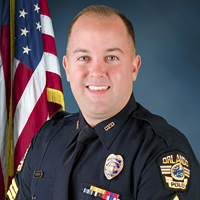
When asked about 2016 data that placed Orlando as the third-highest for calls per capita about human trafficking to the National Human Trafficking Hotline, Lanfersiek said, “Incidents of human trafficking are not necessarily worse here than other parts of the country; we do believe we have raised more awareness in our community, and that has resulted in increased calls.”
An easy way for parents to safeguard their children against human trafficking, Lanfersiek added, is to “Talk with your kids about making healthy social media choices. And if you see something, say something.”
Family Members Sometimes Trafficked
Aaron Blankenship ’04, another member of the MBI human-trafficking task force, spent the early part of his career in the gang unit of the Orange County Sheriff’s Office. Gang behavior is similar to human trafficking, Blankenship said, especially when juveniles are involved. When Blankenship was in the gang unit, he said that the agency had documented 57 different gangs with 1,600 members.
A few years ago, Blankenship worked with other MBI agents on the case of Martin Wright, a 23-year-old who targeted at least two high school girls and forced them into the commercial sex business. Wright was investigated after one of the girls approached her school resource officer and explained what Wright was doing.
Wright, who had met his victims at work, is currently incarcerated, Blankenship said. And his 16-year-old victim, after receiving social services, is getting ready to go to college.
Blankenship, who usually works undercover, said the youngest victim he has encountered was a 12-year-old female who had run away from home. But really, he said, “It could be anybody – affluent or poor.”
And sometimes, it can even be a family member trafficking another family member. Last year, MBI worked with the Department of Homeland Security to bring Juan Parada to justice. According to the arrest affidavit, Parada made a deal with a woman to have sex with her sister. The victim, a minor, said Parada told her “to treat him like a man likes to be treated because they needed money and she needed to concentrate on her future.”
Blankenship said that the complexity of human trafficking cases like Parada’s led a senior investigator to tell him, “Get used to being disappointed.”
“Finding Juan Parada was like finding a needle in a stack of needles,” Blankenship said. The case relied on good, old-fashioned police work, as well as internet research by MBI’s crime intelligence analysts. “There are sophisticated groups of people involved in these cases.”
Goltz, who started his law enforcement career in 1988, said that, looking back, “There was a lot of trafficking back then, but we weren’t educated.” He and the book’s co-authors hope that spreading the word about the victim-centered approach will lessen the scourge of human trafficking.
“It takes a village to fight human trafficking,” Goltz said. “And we are closing the gap.”
Determined to Abolish Slavery

Donna Robinson ‘08 is the Senior International Legal Advisor for Bayt al-Hikmah Law Firm, LLC, and she also serves as a Working Group Vice-Chair for the Georgia Statewide Human Trafficking Task Force. She has more than 11 years of experience in human rights advocacy, primarily genocide prevention and human trafficking.
As a UCF student, Robinson founded Darfur Awareness to bring attention to the genocide in the Darfur region in the Republic of Sudan. In law school, she became involved in anti-trafficking efforts by working with Florida Abolitionist and the Florida Coalition Against Human Trafficking. She continued working on this issue as a Law Fellow with Shared Hope International in Washington, D.C., and most recently with D.C. Stop Modern Slavery, where she served as the Co-Director of Training.
As a descendant of West Africans who were kidnapped, trafficked and enslaved in the United States, Robinson said she feels “deeply connected to the problem of human trafficking and is determined to help abolish slavery… for good this time.”
A Vision of Ending Human Trafficking
Tomas Lares attended UCF in 2000 and is the founder and CEO of Florida Abolitionist, Inc., a not-for-profit organization based in Orlando with a vision of “ending human trafficking of all forms within the United States,” according to its website, floridaabolitionist.org.
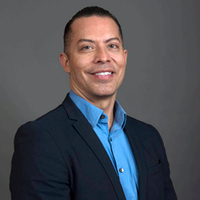
Lares has worked in human services for more than 27 years at the local, state and national level, managing and starting non-profit and public advocacy initiatives. He first became involved in fighting human trafficking in 2004, and in 2005, facilitated the first human trafficking seminar in Brevard County.
In 2009, Lares led the first Human Trafficking Awareness march in downtown Orlando, and cofounded the Greater Orlando Human Trafficking Task Force in 2013. He was named the 2017 Advocate of the Year by the Collective’s Change Everything Awards.
'A Societal Epidemic'
Human trafficking is “a societal epidemic,” according to Emily Priesman ’12 ’14 ’17. Priesman is an assistant professor of criminal justice at Pennsylvania State University. While at UCF, Priesman worked with Florida Abolitionist and helped establish the Human Trafficking Institute at UCF. She has also presented on human trafficking at Evans Community Partnership School, and gathered data to analyze the number and characteristics of human trafficking victims who received social services in the Central Florida area.
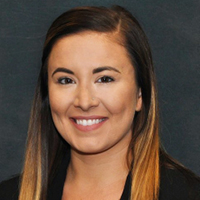
At PSU, Priesman is currently teaching a special topics course with a focus on human trafficking, the first of its kind at the university. She is also collaborating with colleagues on research examining outcomes in specialty courts, specifically those created for human trafficking.
Finding Their Way Out is Their Success
Sue Aboul-hosn attended UCF in the early 70’s, and said “From a very young age, I have been interested in human rights and protecting the vulnerable.” She is the regional human trafficking coordinator for the Central and Suncoast Regions of the Department of Children and Families.
Human trafficking was not added to the abuse maltreatment index until May 2009, Aboul-hosn said. She can recall, however, the first time she realized the vulnerability of the runaway population. It was 2003, and she was trying to locate a 14-year-old girl who had been missing for months. Aboul-hosn said the girl had been arrested as an adult three times for prostitution in Miami-Dade County, and was only released when DCF proved that she was a minor.
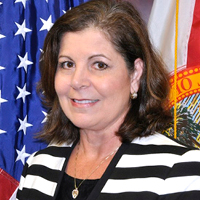
Aboul-hosn said that an example of a success story belongs to the victim. “We do not ‘rescue’ children from this horrific crime. We ‘recover’ them, try to mentor them, and help them navigate the available services. The rest is up to them. Many have found their way out, and that is their success!”
Human Trafficking: A Systemwide Public Safety and Community Approach
By Jeffrey W. Goltz, Roberto Hugh Potter, Joseph A. Cocchiarella and Michael T. Gibson
Contributing Authors: Sue Aboul-hosn, Dave Allmond, Aaron Blankenship, Harold “Jay” Corzine, Brielle Francis, Pat Guckian, Lin Huff-Corzine, Stephanie Koszalka, Wilfredo Martinez, Yadiz Ortiz, Emily Preisman, Jose Ramirez, Sarah Ann Sacra, Ishan Sharma and Jolene Vincent
By Camille Dolan ’98
In His Own Words: Undercover Knight's Mission to Stop Human Trafficking
Ten years after graduating from UCF, I found myself in a dirty motel room working as a narcotics detective. I had long hair, a beard, a pocket full of cash (investigative funds) and a nefarious character standing in front of me, anxious to sell me drugs.
As we finalized the narcotics deal and cash exchanged hands, the trafficker called out to a young woman being held in the bathroom. He commanded her to come out and make herself available. She looked tired. She looked scared. She looked alone. That day everything changed for me. That was the day I met a victim of sex trafficking. Each day after that, I focused my investigations increasingly on stopping the heinous crime of human trafficking.
My workdays became consumed with trans-national human trafficking organizations, domestic minor sex traffickers, and modern-day slave traders. In 2012, I was promoted from detective to agent with the Metropolitan Bureau of Investigation (MBI). In that role, I was cross-sworn with the Federal Bureau of Investigation (FBI). I was assigned to work with a federal task force investigating crimes against children committed by human traffickers across the United States.
As my investigations expanded into new territory for me, I realized I needed to go back to school. My bachelor’s degree had prepared me well for the hours of lectures and written exams I participated in during the police academy, and had prepared me for conducting the kinds of standard police investigations I was responsible for during the first decade of my police career.
However, as I worked with federal agents, prosecutors, non-government organizations, victim advocates and concerned citizens all of whom were aligned to combat human trafficking, I knew I needed to step up my game and go back to school.
I enrolled in graduate studies at UCF and I worked overtime to pay for school. Luckily, my agency supported me by providing a tuition assistance program. I attended lectures one night a week, took classes online, completed heavy duty writing assignments after my kids went to bed at night and worked on group projects with Knights from all walks of life.
In May of 2014, I graduated from the University of Central Florida for the second time with a Master of Science degree in criminal justice. With a UCF graduate degree in criminal justice on my resume, I found myself better prepared for the human trafficking and Internet Crimes Against Children (ICAC) investigations I was conducting as a major case unit detective. A year later I was working secondary employment as an adjunct college professor teaching advanced investigations courses to sworn law enforcement officers who were also combating the crimes described above.
Currently, I am assigned to a uniform patrol division near my alma mater. Some days I wear a uniform and respond to calls for service, and other days I teach police officers, firefighters, paramedics, nurses, clergy, hotel staff and those who care about others the questions to ask and the indicators to look for to identify victims of human trafficking. Questions like: Can you come and go as you please? What are your working or living conditions like? Where is your cell phone? Who has your identification? Do you have to ask permission to eat sleep or go to the bathroom? And the most uncomfortable question of all, are you having sex for money?
I am proud to be a UCF Knight, and am proud to be one of the many Knights throughout the world who are fighting the dark hearts of human traffickers.
Deputy First Class, Orange County Sheriff’s Office